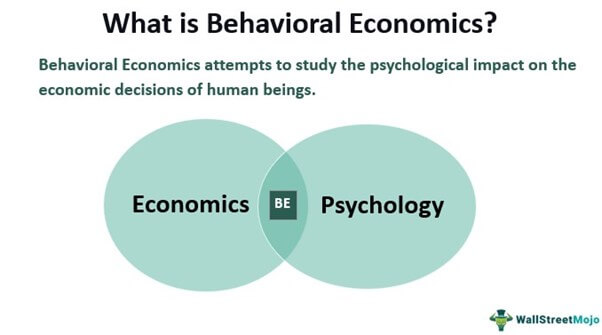Home office job as behavioral economist
Published

Behavioral economics (Behavioral Economics) is a branch of economics that deals with the study of human behavior and decisions in economic situations. In contrast to traditional economic theory, which assumes that people act rationally and make decisions based on complete information and utility maximization, behavioral economics takes into account that people often do not act rationally and can be guided by behaviors that are psychological, social and cultural factors are influenced. Behavioral economics incorporates insights from psychology, sociology, and other related disciplines to provide a more comprehensive understanding of human behavior in economic contexts.
What does a behavioral economist do?

Those : wallstreetmojo.com
A behavioral economist deals with the analysis of human behavior in economic contexts and tries to derive insights and recommendations for action from this. The following activities may occur in everyday working life:
- Data evaluation : Behavioral economists often analyze large amounts of data to identify behavioral patterns and tendencies.
- Experiment design: Behavioral economists conduct experiments to study human behavior and identify possible decision-making criteria.
- Modeling: Behavioral economists develop models to understand human behavior and its impact on economic decisions.
- Consulting: Behavioral economists advise companies, governments or NGOs on behavioral economics issues and develop solutions to influence human behavior.
- Research: Behavioral economists usually also conduct their own research to develop new findings and methods in behavioral economics.
- Presentation: Behavioral economists present their research results and recommendations for action in lectures or publications.
Behavioral economics is an interdisciplinary field that combines concepts and methods from economics, psychology, and other social sciences. Therefore, the activities of behavioral economists can vary depending on the context and specialization. However, here are some examples of activities that a behavioral economist can perform in different contexts:
- Research: Behavioral economists conduct research to understand human behavior in economic decisions. They often analyze empirical data and conduct experiments to identify behavioral patterns.
- Policy advice: Behavioral economists may work in government agencies or think tanks to provide policymakers with advice and recommendations on how they should design policies to influence human behavior.
- Advising Companies: Behavioral economists can work in companies to help design products, services, and marketing strategies. They use their knowledge of human behavior to understand how customers make decisions.
- Training: Behavioral economists may conduct workshops or training for companies or government agencies to provide knowledge about human behavior and decision-making.
- Academic teaching : Behavioral economists can work in universities and colleges to train the next generation of scientists and decision-makers.
These jobs typically require a high level of analytical thinking, ability to interpret data, critical thinking, creativity and the ability to explain and communicate complex concepts.
How much does a behavioral economist earn in Switzerland?

Those : zigla.la
The earning potential for behavioral economists in Switzerland depends on various factors, such as the type of employment (university, research institute, company, etc.), professional experience, qualification level and region. According to some sources, the average annual salary of behavioral economists in Switzerland can range between CHF 80,000 and CHF 120,000. However, it is important to note that these numbers are only estimates and can vary greatly.
How much does a behavioral economist earn in Germany?
The salaries of behavioral economists in Germany can vary greatly depending on professional experience, employer and position. As a rule, graduates with a master's degree in behavioral economics or a similar field can expect a starting salary of around 45,000 to 55,000 euros gross per year. However, experienced behavioral economists who work in leadership positions or have specialized knowledge in a specific area can also earn significantly higher salaries of 100,000 euros or more. The salaries of behavioral economists in Switzerland are generally higher than in Germany, but here too they depend on various factors.
How much does a behavioral economist earn in Austria?

Those : cmu.edu
The salary of a behavioral economist in Austria depends on various factors, such as professional experience, employer, position and location. According to a salary overview from Lohn.at, the average salary for economists in Austria in 2021 was around €51,000 gross per year. However, behavioral economists who work in research and teaching may be able to command higher salaries.








